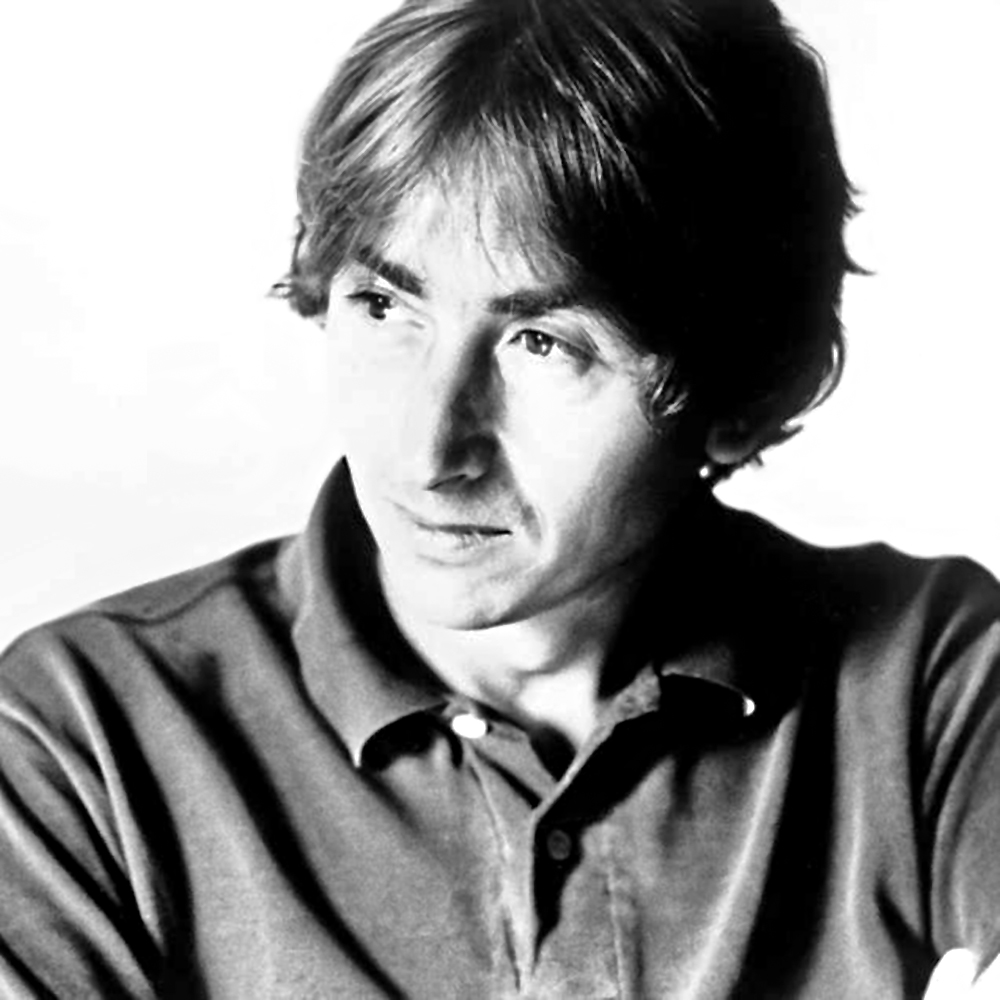On Monday night news broke that Mark Hollis, the vocalist and mastermind behind the band Talk Talk, had passed away at the age of 64.
It prompted an outpouring of love for this most singular and elusive of artists on social media. The phrase genius is often overused but Mark Hollis’s music was timeless and towering and worthy of its connotations. Hollis possessed an incredible vocal talent, trembling and soulful, he had an ability to contort each note, infusing it with a shot of vivid emotional clarity, like a life-raft at sea, offering a centrepiece to the disparate sounds that floated around it. But what was perhaps so constantly surprising and impressive was his songwriting ability, something which constantly evolved Talk Talk’s sound.
From the sweeping playful synth-pop of their 1982 debut ‘The Party’s Over’ and its life-affirming follow-ups ‘Its My Life’ and ‘Colour of Spring’ to the majestic and sparse suites of sound that characterised latter more experimental albums culminating in the 1988 masterpiece ‘Spirit of Eden’ and their final album 1991’s ‘Laughing Stock’. These records marked him out as one of the most influential songwriters of his generation and someone who touched peoples lives with the wonder, vulnerability and depth of his work. Hollis turned evocative production into a virtue, each instrumental part and note given a sense of space and breath that was uncommon in an era of glossy pop. He spoke to the human condition and the frailty of being. After a single solo album in 1998, this reclusive man retired from music twenty years ago, to look after his two sons and hasn’t been heard from since. Today we pay tribute to the unforgettable talent and spirit of Mark Hollis, by picking some of our favourite of his songs.(Bill Cummings)
Talk Talk’s bassist Mark Webb, aka Rustin Man, paid tribute to Hollis on Instagram. “I am very shocked and saddened to hear the news of the passing of Mark Hollis,,” he wrote. “Musically he was a genius and it was an honour and a privilege to have been in a band with him. I have not seen Mark for many years, but like many musicians of our generation I have been profoundly influenced by his trailblazing musical ideas.”
Talk Talk
From 1982’s ‘The Party’s Over’, the urgency of their eponymous single ‘Talk Talk.’ Sure you can hear the similarity to other synth-pop acts like Duran, Visage and A Flock Of Seagulls, but there’s a scope here that suggests they are thinking beyond the nightclubs of London town. (Ed Jupp)
Today
I first became aware of Talk Talk through my obsession with synth-pop music in the early 90s. ‘It’s My Life’ was the song that caught my attention and it was their breakthrough hit, ‘Today’ that persuaded me to buy, their greatest hits. In later years, I fell in love with the more abstract and introverted world of, The Colour Of Spring, Spirit Of Eden and Laughing Stock — possibly the finest trio of albums in music. It was these early singles are where it all started meaning I got to experience their uncompromising evolution in chronological order, albeit a decade later.
Despite Talk Talk becoming more ambitious with each release, you can hear the early hints of their genius through this evocative single. Like everything they put out, the production is immaculate with the fluttering drums, longing synths and catchy fretless bass blending well. Hollis sings, “cover me with shades of disbelief” — a typical lyric full of intrigue. The call and response vocals in the chorus provide an immediate pop thrill that is unrecognisable to the band who put out the experimental post-rock meets free jazz of Laughing Stock just nine years later.
‘Today’ was the brief moment when EMI may have been convinced they got someone to replicate the success of Duran Duran as they’d hoped. Instead, they got a band who they would end up in court with due to their increasingly uncommercial music. It would be easy to neglect Talk Talk’s beginnings due to the astonishing genre-defining music they would later create, but ‘Today’ is an excellent piece of emotional electro-pop. (Jonathan Wright)
My Foolish Friend
After the success of, The Party’s Over in 1982, the band released ‘My Foolish Friend’ as a stopgap single the following year. ‘My Foolish Friend’ was a transitional single for the band — a neat link between the emotive synth-pop of their first era and the polished sophisti-pop leanings of It’s My Life.
A huge crash of metallic keyboards introduces the song followed by a chiming guitar part that establishes their musical shift as everything sounds bigger. The smoothness balanced with the sonic attention to detail in the production puts them in the same league as their contemporaries, The Blue Nile, Roxy Music, Kate Bush, Peter Gabriel and David Sylvian. These were all artists striving for their own advanced approach to making pop music around a similar time. Hollis’ voice has the expressive anguish that characterised, The Party’s Over, but there’s more command in his delivery. The melancholy of his words matches the slick atmospherics of their new musical identity as he pleads, “my foolish friend, don’t try to live my life, upon this weary line”.
‘My Foolish Friend’ wasn’t featured on any of their studio albums and is their most underrated single that deserved more than its number 57 chart position. It’s hard to understand why this glorious hook-filled single failed to catch on. It’s the sound of them blossoming as artists and sometimes the feeling of all that promise and potential is the best part. (Jonathan Wright)
It’s My Life
‘It’s My Life’ is built upon a bed of clicking drum machines, snaking baselines and synths that swirl and squawk gradually enveloping the listener. “One-half won’t do,” sings Mark Hollis in the pre-chorus, before the song lets flight into glorious, life-affirming crescendos lifted aloft by firing drum machines, warm tumbling synths, while Hollis’s imperious tone shivers with a wistful impregnable power, ripe with existential yearning. Each note gives voice to a quivering vulnerability and a clinging to hope, embodying the contradictions of life’s constant struggle, alone and part of the crowd all at once (caught in the trap it never ends’).
Originally written by the band’s creative hub of Mark Hollis and Tim Friese-Greene, it was the title track on the band’s second album and released as its first single in January 1984. Surprisingly It only just scraped into the top 50 in the UK charts that year but was a hit throughout Europe. Talk Talk would go on to chart more left-field sounds with exquisite long players like ‘Spirit of Eden’ and ‘Laughing Stock’ earning more critical acclaim in retrospect, but the existential pop brilliance of ‘It’s My Life’ left an indelible mark.
(Bill Cummings)
Happiness Is Easy
From the very start of The Colour Of Spring opener, ‘Happiness Is Easy’, you can already hear how much has changed in the four years since, The Party’s Over. Hollis’ increased interest in Miles Davis and Can, is evident from the loose nature of the instrumentation. The hypnotic percussion courtesy of Lee Harris gives a suitable backing for Paul Webb’s twisting bass-line and the splashing of piano. The synthesizers that dominated their earlier work have now been replaced by acoustic guitars and woodwind instruments. The band were already becoming out of step with current music trends which makes them such a singular and thrilling prospect.
Hollis has a lot on his mind as he sings, “makes you feel much older, sublime the blind parade. It wrecks me how they justify their acts of war” with a weariness caught in that beautiful yearning voice of his. As the stunning strings wash over you in the pre-chorus it gives the song that hint sadness that gave Talk Talk such humanity despite how mysterious their music and image could be. The interplay between the children’s choir and Hollis repeating the title in the chorus is incredibly poignant mixing devastating sorrow with underlying hope in a way that only Talk Talk could. ‘Happiness Is Easy’ is still catchy songwriting (especially compared to their later work) even with all the atmospheric layers and sense of intricacy. It’s a breathtaking and timeless opener from the band’s first full-length masterpiece. (Jonathan Wright)
Living In Another World
When ‘Life’s What You Make It’, the first single from Talk Talk’s third album ‘The Colour Of Spring’ came out in early 1986, it marked a subtle new direction for the band. After hearing it so much now, it’s hard to remember what a slow-burning single it was, far less catchy on the surface than the band’s previous singles, but with a real depth and incredible textures.
The following single, Living In Another World took this still a step further for me, swirling Hammond organ and that wonderful, plaintive vocal from Mark Hollis. It didn’t sound like anything I had ever heard before or indeed anything since. Living In Another World was just about the perfect title for a band who were doing exactly that. (Andy Page)
Desire
‘Desire’ after a brief organ fugue the track starts properly with a plaintive two note strum, before gently building with rolling thunder drums and Hammond washes before suddenly erupting into rampantly flailing drums and serrated guitar slashes and all hell breaks loose, then, just as everything seems to be near breaking point, it drops back into near silence, the strummed guitar that started the piece now alone again, The quiet-loud dynamic was arguably never put to better use than on Desire, a towering, utterly mesmerizing and addictive piece of music that never dates and is ample representation of Mark Hollis and Talk Talk’s genius. (Nikolai Rainbow)
I Believe In You
For an artist who maintained an uncompromising punk attitude throughout his career (Once referring to himself as an “Awkward geezer”), Mark Hollis’ later works (Spirit of Eden, Laughing Stock) suggested a man with astounding emotional depth and empathy. Someone who could talk about the human condition through musical exploration and boundless creativity. There are many moments that make your skin tingle on Spirit…, but one of the most indelible and life-affirming has to be penultimate track, ‘I Believe In You’. Slow-building and sparse, the track begins to delicately paint over a dark sense of uncertainty and melancholy with bright, angelic ambience. At first, it feels lonely but the sheer optimism and celestial grandeur of the last third is utterly overwhelming, as Hollis’ sings in his effortlessly emotive and unique voice. This all hits even harder when you find out the song was written as a plea to Hollis’ brother Ed, to give up his heroin addiction. Hollis’ wise, understanding words came just too late, as Ed tragically passed away in the same month that the single and album itself was released. A truly beautiful and extremely personal piece of songwriting which – like its creator – should never be forgotten. (Nad Khan)
Eden
Whilst 1988’s ‘Spirit Of Eden’ didn’t produce any big hit singles, it showed that the band had moved on leaps and bounds even from the changes that had come about on their previous album. Its subtle sweeps, exquisite vocals and ambient instrumental showed a link with pastoral records like Virginia Astley’s From Gardens ‘Where We Feel Secure’ (1983) and points to post-rock, particularly bands like Sigur Ros. (Ed Jupp)
Myrrhman
The band’s final album ‘Laughing Stock’ would become even more minimalist – and links to bands like Godspeed You Black Emperor!, and possibly full circle to early 80’s contemporaries like David Sylvian. This opening track is seemingly about suicide but utterly beautiful. (Ed Jupp)
After the Flood
The tales of the protracted recording processes of recording their ‘Laughing Stock’ album are well documented but this was the one where Mark and Tim Friese Green really pushed the envelope. Halfway through it’s swirling miasma of dubby bass, swishing cymbals and otherworldly sounds, Mark was stuck what to play in the 8 bars in the middle of the song where a middle with would usually fall, he tried many different tones and permutations of notes before deciding that just one note would do, fed through an amp and splintering hither and thither, feeding on itself and forming a weirdly addictive atonal break that is absolute genius the way the track ebbs and flows is like the slow crawl of nature itself, and makes for a very compelling centrepiece to the album. No-one else would ever have thought of breaking the rules in such an obtuse and refreshing way which make it only more special.
R.I.P Mark, quiet genius and hero to anyone with adventurous taste in music, we will never see your like again. (Nikolai Rainbow )
New Grass
‘New Grass’ is the direction that the post-rock genre should have gone in. Rather than a slow, predictable separation of the “quiet” from the “loud”, or the “rock” and the “roll”, ‘New Grass’ is a reconstruction of the tropes of rock music, focusing much more on silence and noise, on darkness and light and the interplay between them. Every layer is meticulously constructed and equally important as the ones above and the ones below it, from the swirling Elvin Jones-aping drum swirls that sound like they were recorded separately to the rest of the track to Hollis’ half-obscured yearning vocals.
It has that contrast that exists in all truly irresistible music. Here it lies between the virtuoso, albeit free of ego, musicianship that carries the track and the human fragility that is at the heart of it. Hollis was a genius, but a fragile one that had no need to declare himself as such. ‘New Grass’ sums him, and indeed the band, up better than any other track they wrote. (Jordan Dowling)
Inside Looking Out
Mark’s sole release under his own name was his 1998 eponymous album from which this is taken. Just brilliant. (Ed Jupp)
Rest in Peace, Mark Hollis.




